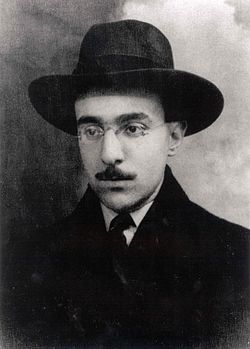Fernando Pessoa Quote
I don’t know how many souls I have.I’ve changed at every moment.I always feel like a stranger.I’ve never seen or found myself.From being so much, I have only soul.A man who has soul has no calm.A man who sees is just what he sees.A man who feels is not who he is.Attentive to what I am and see,I become them and stop being I.Each of my dreams and each desireBelongs to whoever had it, not me.I am my own landscape,I watch myself journey -Various, mobile, and alone. Here where I am I can’t feel myself.That’s why I read, as a stranger,My being as if it were pages.Not knowing what will comeAnd forgetting what has passed,I note in the margin of my reading What I thought I felt. Rereading, I wonder: Was that me?God knows, because he wrote it...
I don’t know how many souls I have.I’ve changed at every moment.I always feel like a stranger.I’ve never seen or found myself.From being so much, I have only soul.A man who has soul has no calm.A man who sees is just what he sees.A man who feels is not who he is.Attentive to what I am and see,I become them and stop being I.Each of my dreams and each desireBelongs to whoever had it, not me.I am my own landscape,I watch myself journey -Various, mobile, and alone. Here where I am I can’t feel myself.That’s why I read, as a stranger,My being as if it were pages.Not knowing what will comeAnd forgetting what has passed,I note in the margin of my reading What I thought I felt. Rereading, I wonder: Was that me?God knows, because he wrote it...
Related Quotes
About Fernando Pessoa
Pessoa was a prolific writer both in his own name and approximately seventy-five other names, of which three stand out: Alberto Caeiro, Álvaro de Campos, and Ricardo Reis. He did not define these as pseudonyms because he felt that this did not capture their true independent intellectual life and instead called them heteronyms, a term he invented. These imaginary figures sometimes held unpopular or extreme views.
